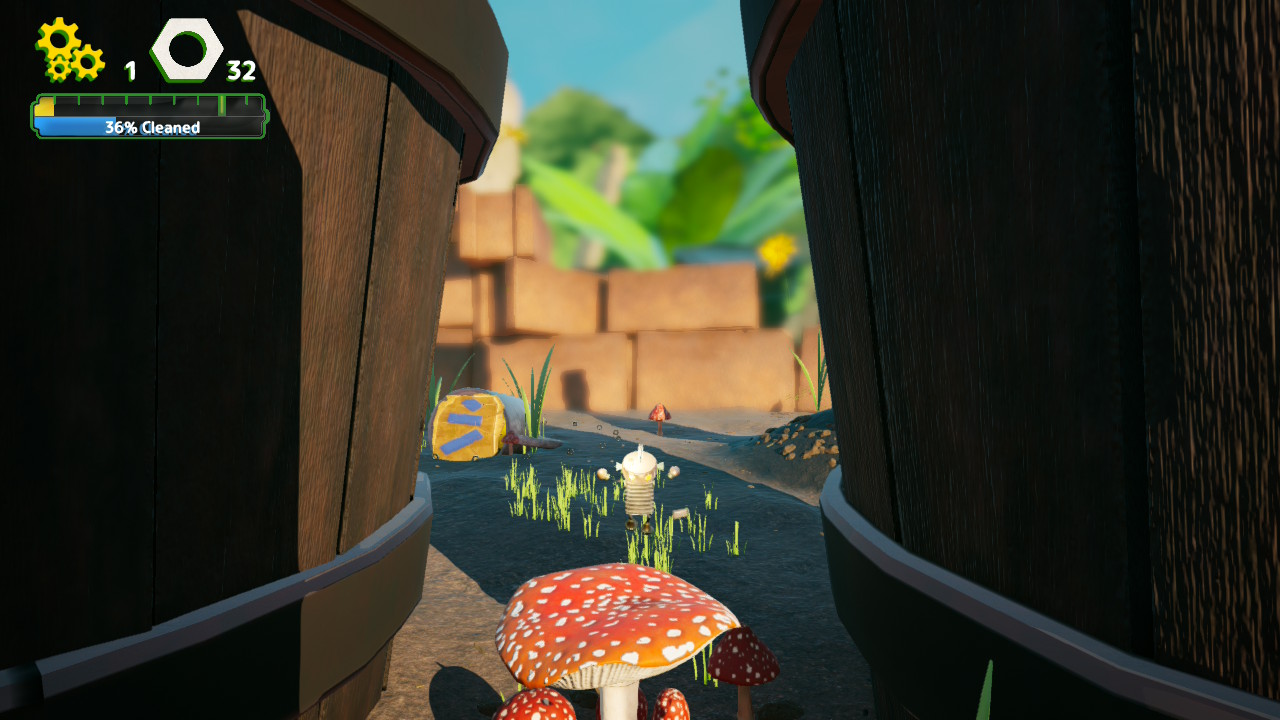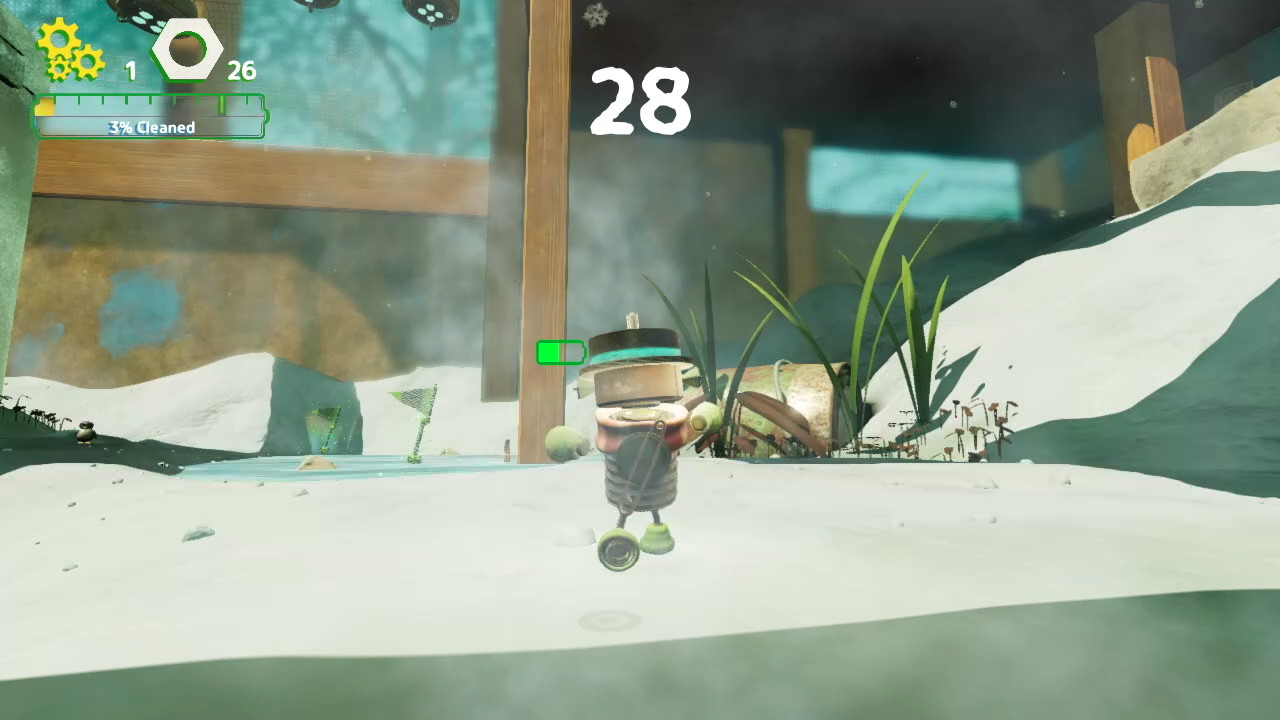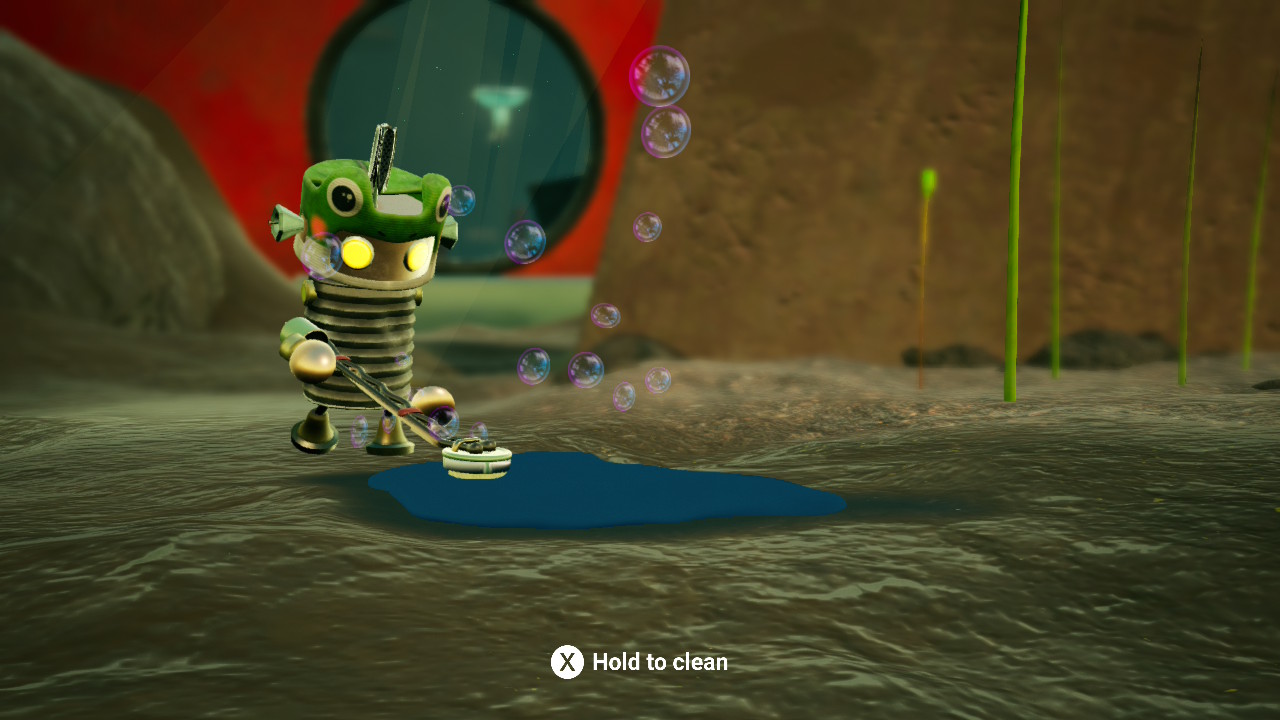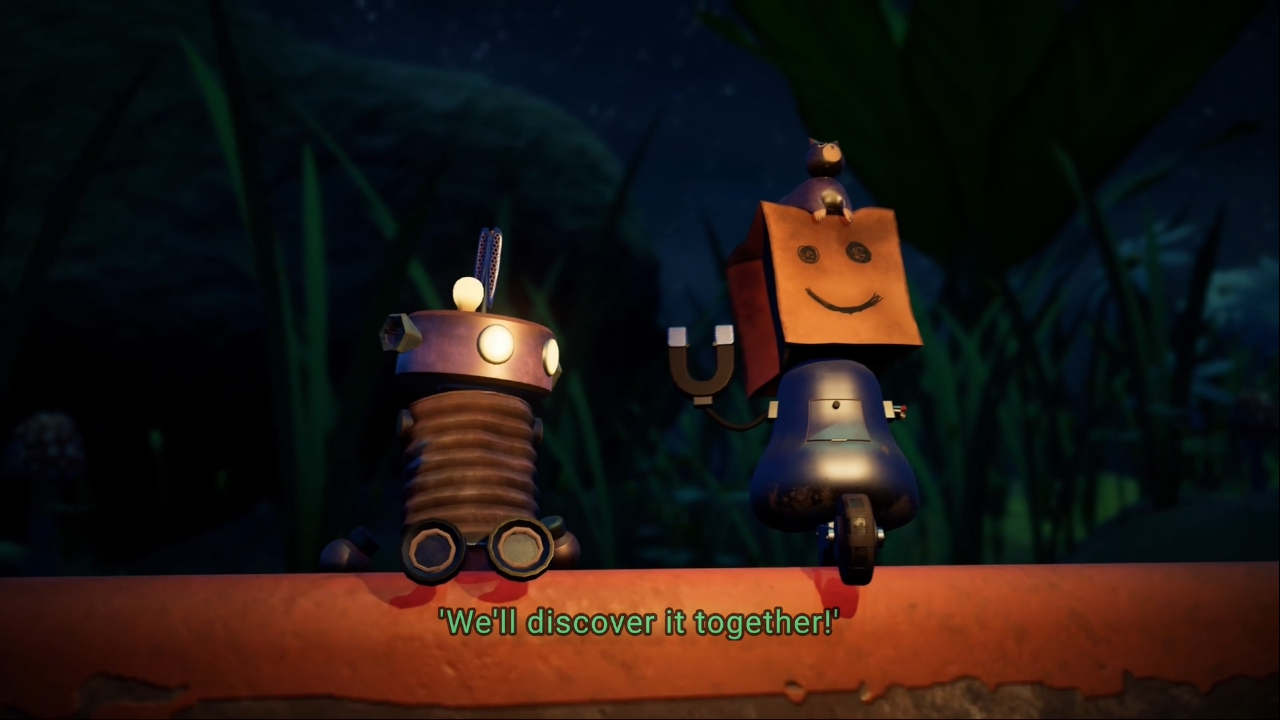And I feel very represented.
Springing onto PC and Switch and compatible with Switch 2 in a way that feels made for the platform, MISC. A Tiny Tale competes with more corporate robot games by doing what they can’t: unashamedly representing individuality.
The game was made in Western Australia and from the start, the subtle cultural influence is noticeable.
As a tiny, wobbly fellow named Buddy, I exit the pot plant I call home to the sound of kookaburras and feel instantly teleported back to my childhood, being woken by native birds.
It’s not just the Australiana in the soundtrack that makes the sound design wonderful. When Buddy speaks, I hear a unique tone that I can only describe as similar to the talking in Banjo Kazooie or perhaps Animal Crossing.
Animal Crossing refers to this kind of speech as ‘Animalese’, so I guess you could call this ‘Robotese’ - and I find it delightful.

Propelling myself from platform to platform, I am thrilled to be introduced to the simple, smooth actions of jumping, double jumping, then diving to help me collect the series of gears hidden around the level; the game's main objective.
But my joy for double-jumping is quickly dashed when I am shown the length of the sprint meter: a measly 3 seconds.
Some parts of the game try to make up for this limitation by adding the occasional boost pad or conveyor belt, which begs the question: why have a sprint meter in the first place?
The only answer I can come up with is an awful sprint challenge through the snow which was uncompleteable, at least by me, without also jump-diving as well as, some-could-say optional screaming.
In addition to the main story, there are bonus sets of gears to find across each level as well as a daunting extra mini-level called ‘Gus’s Challenge.’ Gus is a shady raccoon (cue more Animal Crossing parallels) who sets up platforming challenges throughout the game for you to complete. While these are optional, they are one of my favourite parts of the experience.

Also scattered throughout each map is a bunch of garbage.
Wandering each level looking for all of that garbage and subsequently yeeting it into the RECYC0TRON, is really what makes MISC. feel like a, yep I’m saying it, cozy game.
Relaxing after work by picking up trash, humming as I clean oil, paint or crayon and filling the ‘Difference Made Meter’ is very satisfying.
Also satisfying and cozy, especially if you’re a people-pleaser like I am, is the act of helping other tiny robots around this tiny world with their tiny problems.

After traversing a varied selection of chapters, accessed via some gorgeous storybook map visuals (very Plucky Squire), my heart is feeling full. Each map is unique enough to make me excited every time. What keeps me going through this journey to the end however, would have to be the intriguing story.
While on the outside questions like ‘what was the mysterious explosion?’ and ‘who the heck is Sign Guy?’ keep me hooked, the core story is an important one I reckon we all know fairly well… a story of being othered.
This is the part that really resonates. As I venture through a world that feels far too big, I hear a load of rubbish or, excuse the pun, trash-talk about my one-armed friend Bag Boy and his “peculiar cat.” When the game tells me that “even his dance is different,” I am once again teleported back to my childhood, but this time it isn’t as friendly.
What I also hear though, as I talk to each unique and charming bot, are their worries: every character in this world also has things that make them feel, well, small. All these isolated bots DO share something in common - the fact that they are all different. Hiding these differences away isn’t something they need to do.
By exploring important themes such as living with disability, openly queer relationships, unmasking and being kind to others even when they can’t help you in return, this game helped to heal that inner-child, by showing that everyone is, or should be allowed to be, unique; and that loneliness is better experienced, surprisingly enough, together.
A copy of MISC. A TINY TALE on Switch was provided to SIFTER for the purpose of this review.
